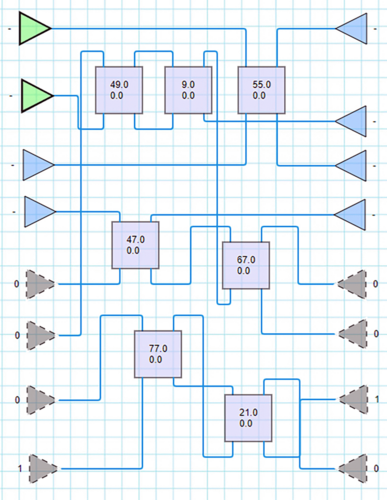St Petersburg University scientists develop a search technique for optical quantum circuits based on a genetic algorithm
Physicists at St Petersburg University have applied an evolutionary algorithm to search for new linear optical quantum circuits. Without the use of this innovative technique, it would take years of research efforts to find such circuits.
The research findings are published in the leading American peer-reviewed journal Physical Review A.
Today, quantum computing is being developed on different platforms. Yet so far, there is no answer as to which platform will be realisable. Currently, the main research areas in quantum computing focus on developing quantum algorithms on four main platforms: ions; neutral atoms; superconductors; and photons. The Quantum Optics Laboratory at St Petersburg University is developing photonic quantum computing. Photon qubits (i.e. quantum bits) have many advantages. They are relatively easy to generate and manipulate and they do not need the cooling normally required by superconductors or neutral atoms. The main challenge of working with photons is the need to engineer interaction between them, because one photon cannot directly interact with another photon. The attempts to create conditions for their direct interaction have failed so far. To overcome this challenge, the heralded quantum circuits are used, which is the central focus of the paper.

Heralded quantum circuits enable the observer to determine the state of a "residual" system based on the state of the auxiliary system used for measurements. That is, the results are filtered after the logical operation has been performed. Hence, heralded quantum circuits operate probabilistically.
Heralded circuits have been known for about 20 years. However, there are only a certain number of circuits with specific optical elements and specific configurations.
The question remains: can we build a quantum circuit that would work better? This is the issue we tried to address by using a genetic algorithm to find optimal quantum circuits.
Tatiana Golubeva, Professor in the Department of General Physics I at St Petersburg University
‘We determined the key parameters of the circuits in analogy to the DNA code and modelled the evolution of generations by introducing "selection", "crossing", and "mutation" of individuals, where individuals meant optical quantum circuits. As a result, in a few minutes, the software was able to find the circuits that previously would have taken years to detect,’ shared Tatiana Golubeva, Professor in the Department of General Physics I at St Petersburg University.
The inspiring results were obtained by combining efforts and methods. The software code was developed by a group of mathematicians from the Euler International Mathematical Institute − the group headed by Sergei Sysoev, Associate Professor in the Department of System Programming at St Petersburg University. The conference paper is, in fact, a presentation of the amazing opportunities offered by transferring of genetics methods and approaches to quantum physics.

